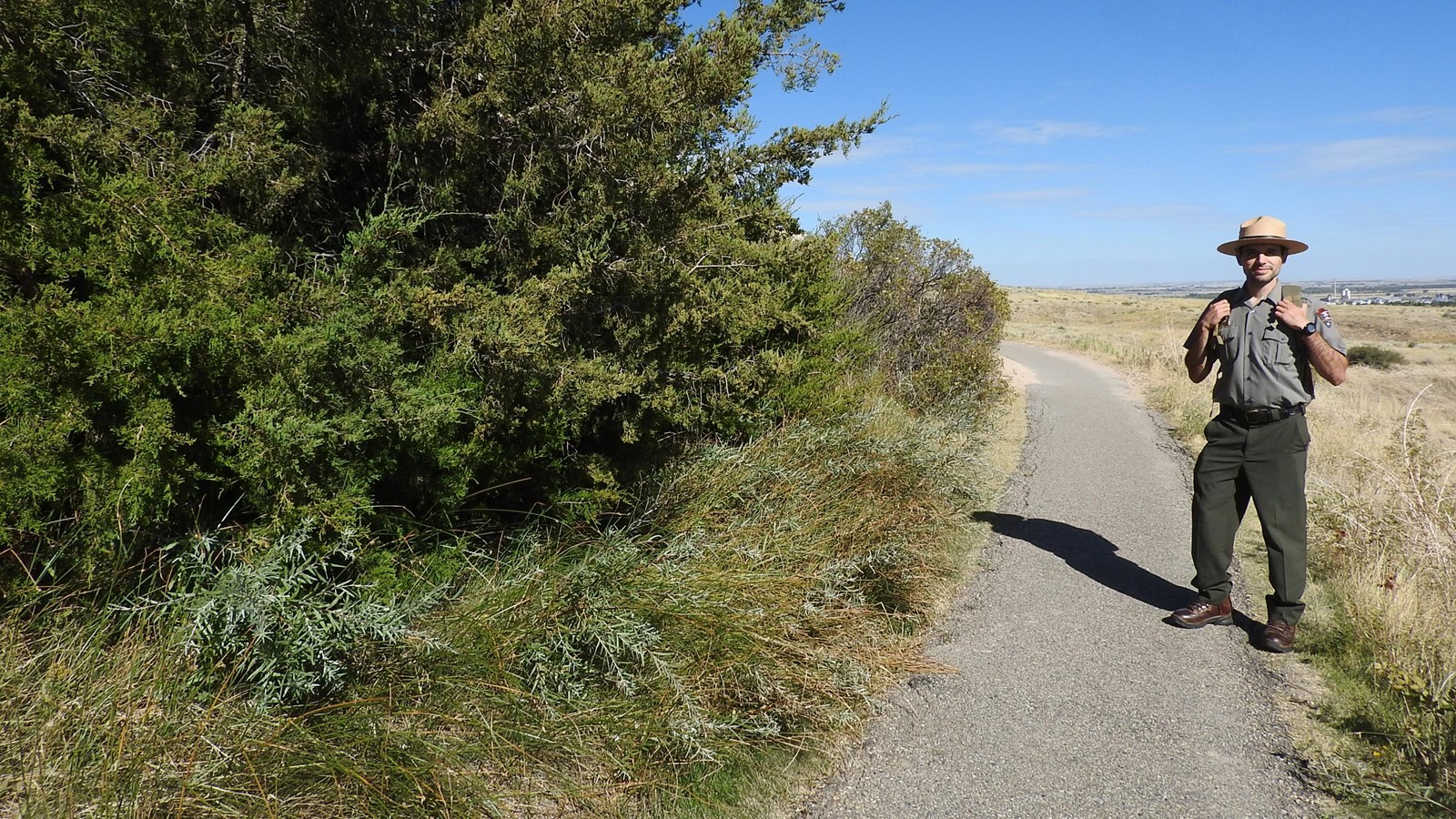Last updated: January 27, 2025
Place
Stop 11: Scotts Spring

NPS/Eric Grunwald
Quick Facts
Location:
41.832109, -103.698832
Amenities
1 listed
Scenic View/Photo Spot
The last stop on our tour is Scotts Spring. Scotts Spring is the only natural spring located in Scotts Bluff National Monument and issues from cracks within Whitney Member siltstones. Scotts Spring is typical for a spring that discharges from siltstone in that it discharges little water and is located in an area of structural weakness. Despite the fact that little water is discharged here, the spring is an important source of drinking water for the animals that call Scotts Bluff home and the vegetation found here includes species of plants that are typically found in wetter environments, like willows.
We hope that you enjoyed your walk through geolgic history here at Scotts Bluff National Monument. In a way, you have walked back in time. Starting at the Monroe Creek-Harrison Formations that were depositied up to around 25 million years ago, you then walked down into the older Gering Formation which is up to 28 million years old. Finally you made your way down into the Whitney Member, which is roughly 30 million years old. While these ages make geology feel like something that shaped the monument in the past, remember that these geologic changes are still happening today. For that reason, we hope you will return to the Monument in the future to see how geologic processes have changed this special place.
We hope that you enjoyed your walk through geolgic history here at Scotts Bluff National Monument. In a way, you have walked back in time. Starting at the Monroe Creek-Harrison Formations that were depositied up to around 25 million years ago, you then walked down into the older Gering Formation which is up to 28 million years old. Finally you made your way down into the Whitney Member, which is roughly 30 million years old. While these ages make geology feel like something that shaped the monument in the past, remember that these geologic changes are still happening today. For that reason, we hope you will return to the Monument in the future to see how geologic processes have changed this special place.
-
Scotts Spring
Stop 3 on the Scotts Bluff National Monument Saddle Rock Audio Tour.
- Date created:
- 07/22/2024
